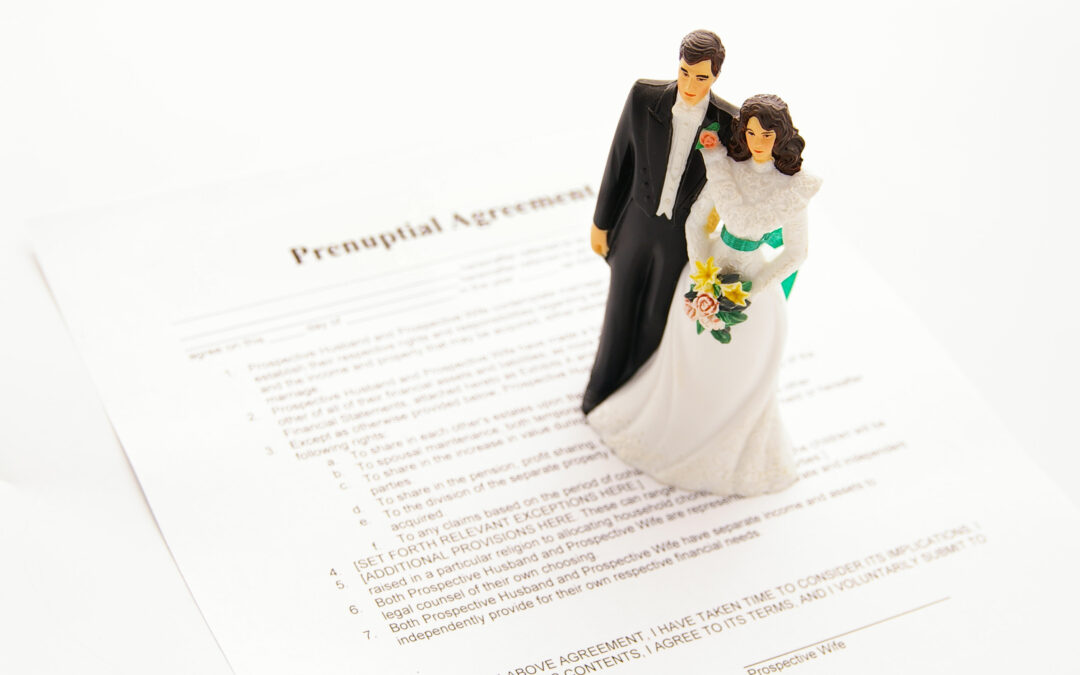The Beckham and Peltz wedding was the wedding of the year with designer dresses and A list celebrity guests. However, it wasn’t the wedding that got people talking but rather the pre-nuptial agreement nicknamed ‘the mother and father of all prenups. Prenups have not been a popular part of everyday marriage in the UK but following the case of Radmacher v Granatino, their popularity has been gaining traction.
In this blog, we explore the benefits and the setbacks of pre-nuptial agreements, as well as how to enter into one and where the law stands when it comes to enforcing the agreement if the marriage breaks down.
Positives of Signing a Pre-nuptial Agreement are:
- Future Security: As some marriages can, unfortunately, end in divorce, marriage to some people can be seen as a financial risk. Therefore, a pre-nuptial agreement can allow both parties to feel secure within the marriage that their property and finances are protected as there is an agreement between them from the outset.
- Minimise conflict: When most relationships end and finances become involved, there can be a lot of animosity between the parties when trying to come to an agreement. However, having an existing pre-nuptial agreement in place can avoid any uncomfortable disagreements upon separation.
- Protection of children: if there are children from a previous relationship in the marriage, a prenup can allow you to ringfence certain assets for your children in order to protect their interests also.
- Protection of Assets: Parties can also protect specific assets that they want to keep on separation such as family heirlooms, businesses or gifts received from a third party.
Negatives of Signing a Pre-nuptial Agreement are:
- Unromantic: As romantic gestures go, organising your finances in case you decide to separate is probably not the most romantic thing to do before your wedding and so this puts many people off.
- Not automatically legally binding: Although the UK courts will generally take fair and considered pre-nuptial agreements in to account, it is not a legal obligation for the court to enforce them. If a judge believes the agreement is not fair, they may decide to disregard the terms or vary it in someway.
How to go about making a Pre-nuptial Agreement:
Couples thinking of making a pre-nuptial agreement should firstly both make a list of each individual asset they own and decide in the case of separation, how they would like that asset to be divided.
It may also be worth considering what would happen if one partner must stop working in order to raise a family. For example, it may be agreed that there should be some form of maintenance payments following separation.
In cases such as farming, where the property is a business, family heirloom and home, it may be worth establishing what would happen on separation to the land, business and the property to save confusion and stress on separation.
The Law on Pre-nuptial Agreements:
The Law Commission and the Supreme Court have set out the following qualifying criteria for a pre-nuptial agreement:
- The agreement must be freely entered into;
- Both parties must understand the implications of the agreement;
- The agreement must be fair;
- The agreement must be contractually valid;
- The agreement must have been made at least 28 days before the wedding;
- There should be disclosure about the wider financial circumstances;
- Both parties must have received legal advice;
- It should not prejudice any children; and
- Both parties needs must be met.
By instructing a solicitor to assist in the preparation of a pre-nuptial agreement, they can advise you on how to ensure the agreement falls within the qualifying criteria and whether the overall terms are fair and likely to be enforced by a court if ever challenged in the future.
If you would like further guidance or legal advice in relation to pre-nuptial agreements our talented family law team would be happy to help you. You can contact us on 0113 322 9222 or email enquiries@consilialegal.co.uk.

